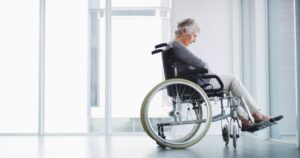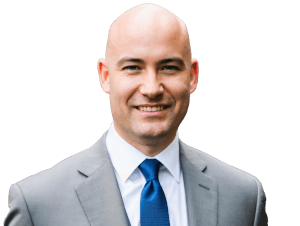
Under Georgia law, any action or failure to act that results in harm to a nursing home resident may constitute nursing home abuse. This includes physical, emotional, sexual, or financial abuse, as well as neglect in the form of a failure to provide proper care.
If you suspect nursing home abuse, it’s important to report it immediately. Georgia law provides strong protections for nursing home residents. If you or a loved one is a victim, you can seek legal guidance from a skilled attorney.
An Atlanta nursing home abuse lawyer can help families ensure their loved ones are safe and protected.
What Are the Types of Nursing Home Abuse?
Knowing the different types of abuse can help you better understand if they are occurring. These situations constitute nursing home abuse under Georgia law.
Physical Abuse
Physical nursing home abuse involves intentional acts that cause bodily harm, such as hitting, slapping, or using restraints. Signs can include visible injuries like bruises, burns, or broken bones that may be mistaken for accidental harm if not investigated properly.
Emotional or Psychological Abuse
Verbal threats, humiliation, isolation, or intimidation are all abusive behaviors because they can cause emotional distress or mental suffering. Victims may show signs of fear, withdrawal, anxiety, or depression, even without visible injuries.
Sexual Abuse
Any non–consensual sexual contact or behavior is considered sexual abuse. This includes inappropriate touching and assault. Residents with cognitive impairments are especially vulnerable and often unable to give consent or report the abuse.
Financial Exploitation
Financial abuse can involve theft, fraud, coercion, or manipulating legal documents for personal gain. Any unauthorized or improper use of a resident’s money, property, or assets could be a warning sign.
Neglect
In a nursing home, neglect often takes the form of failing to provide essential care like food, water, medical treatment, hygiene, or supervision. Neglect can lead to serious issues such as malnutrition, bedsores, infections, or preventable medical emergencies.
What Should You Do if You Suspect Nursing Home Abuse?
Even if you aren’t sure what constitutes nursing home abuse under Georgia law, if you suspect something is wrong, you must take action.
Call the Police
If someone is in immediate danger, call 911 and get help. The police will investigate and take action if necessary. If nothing else, it creates a legal report of suspected abuse at the facility in case additional allegations arise.
Get Legal Help
If you aren’t sure you have a case, reach out to an elder law attorney to talk about your suspicions. Your attorney can advise you on what to do next, and, if necessary, file legal action against the facility and the people involved.
If you choose to pursue civil action against the facility or individuals, your attorney can help you recover compensation such as medical expenses, pain and suffering, and the cost of moving to a new facility.
Contact the Ombudsman
The county ombudsman serves as an advocate for nursing home residents. They investigate allegations of abuse or neglect and, if evidence is found, report their findings to the appropriate authorities to ensure accountability and protect the resident’s rights.
This could mean an investigation by the Georgia Department of Community Health and potential action, such as a license suspension, as well as criminal charges against individual staff members.
File a Report
If you are aware of elder abuse in a skilled-nursing facility, whether your family member is involved or not, you can and should make a report yourself. You can report elder abuse, neglect, and exploitation to the Georgia Department of Human Services, Division of Aging Services.
You can also file a complaint with the Healthcare Facility Regulation Division of the Georgia Department of Community Health.
Tell the Administrator
Nursing home administrators are mandatory reporters in Georgia. That means they are legally required to report and investigate any allegation of suspected elder abuse.
Keep Detailed Records
If you believe abuse is happening, keep notes so you don’t forget the details. If appropriate, you may take photos that support your claims. Keep a record of what you saw, when it happened, and the names of staff or other residents you believe were involved.
What Are the Warning Signs of Nursing Home Abuse?
It can be hard to understand what your loved one experiences when you aren’t around, especially if they have difficulty communicating. Some of the warning signs of abuse you can watch for include:
- Unexplained injuries or signs of restraint may suggest physical harm.
- Sudden mood swings or withdrawal can signal emotional or psychological issues or abuse.
- Poor hygiene, untreated conditions, or being left in unsafe environments can indicate neglect.
- Bruising, sexually transmitted infections, or fear of touch may be symptoms of sexual abuse. Unusual financial activity or missing belongings can point to economic exploitation.
- Fearfulness, agitation, or unwillingness to speak openly may reflect abuse or mistreatment.

Get Help With Nursing Home Abuse
It’s easy to understand how physical attacks or verbal intimidation constitute nursing home abuse in Georgia. Other forms of abuse are more subtle, and the signs are often hard to spot. If you have a loved one in a nursing home, it is important to stay vigilant.
If you suspect abuse but you aren’t sure, you might be concerned about getting people in trouble if you are wrong. However, it is always better to take immediate action and be wrong than to possibly allow abuse to continue.
If you are in doubt about what constitutes nursing home abuse in Georgia, you can talk to us. At Schenk Nursing Home Abuse Law, we have spent most of the past decade exclusively helping families with nursing home abuse cases.
Our consultations are free and come with no obligations. You can discuss your concerns, and we’ll let you know if legal action is necessary.





